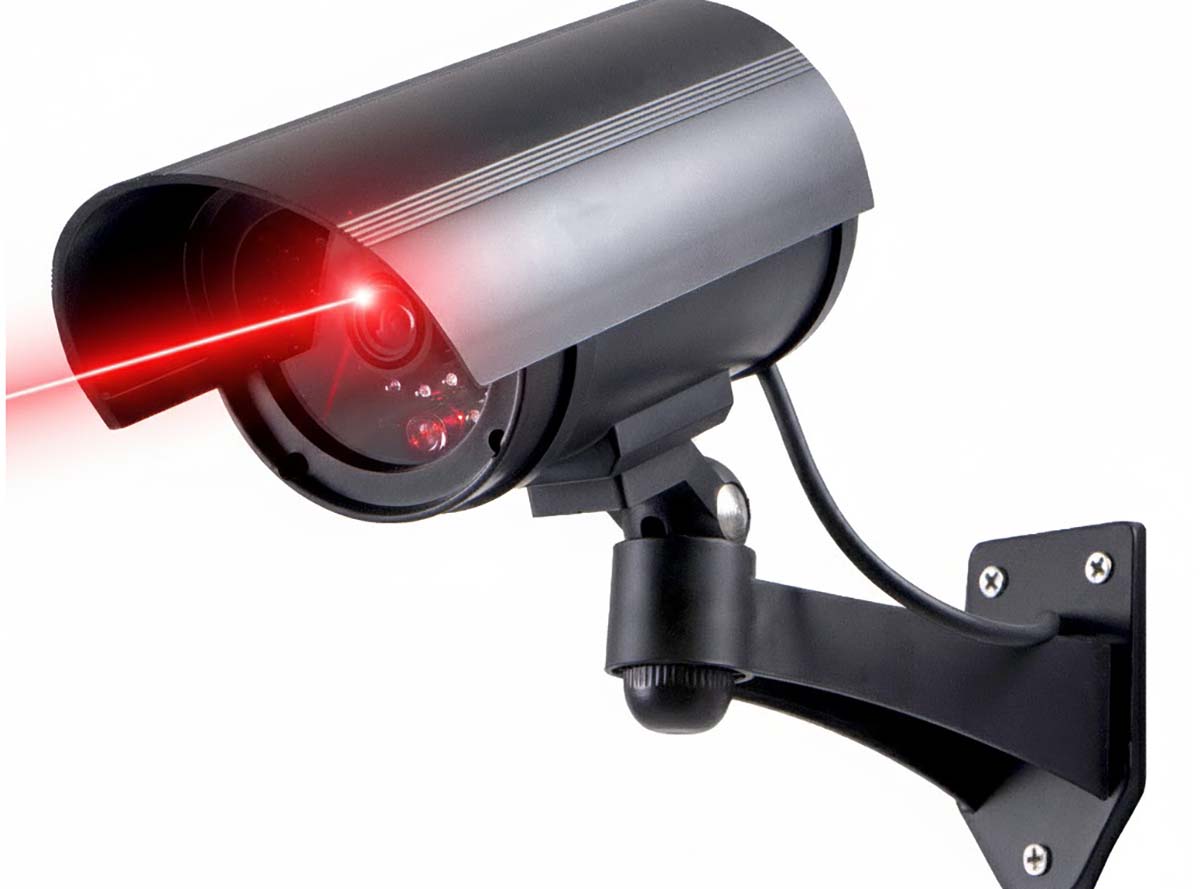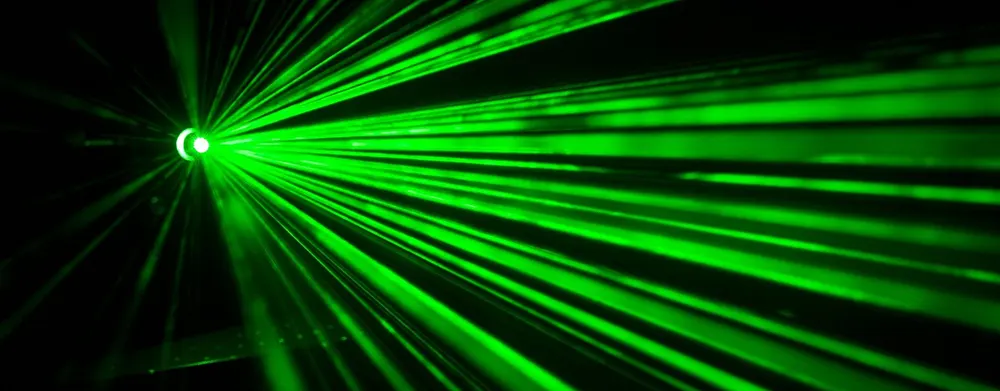Security cameras play a critical role in modern safety systems, yet even well-installed devices can be vulnerable to intentional interference. One of the most common concerns involves laser pointers and whether their concentrated light can harm a camera’s lens or sensor.
As laser misuse becomes more frequent, understanding the risks and knowing how to prevent damage has become an important part of protecting any surveillance setup.
Let’s start by answering the question “Can a laser pointer damage a camera lens?

Yes, a laser pointer can damage a security camera, especially when the beam is directed at the lens for an extended period.
A camera relies on its lens and image sensor to capture and process incoming light. Because these components are sensitive, a focused laser beam can overwhelm them, disrupt normal operation, and in more serious cases, leave permanent marks on the sensor.
The level of damage depends on several factors:
- Laser power output
- Distance between the laser and the camera
- Length of time the beam stays on the lens
A lower-powered laser might cause temporary whiteout or distortion, while a stronger beam—or long exposure—can create irreversible issues such as dead pixels, bright streaks, or dark spots in the recorded footage.
What Happens If You Point a Laser at a Security Camera?
A laser pointer produces a highly concentrated stream of light, far more intense than normal illumination. When this beam enters a camera lens, it overloads the sensor with excessive brightness. The sudden spike of light can wash out the image, distort colors, or briefly blind the camera.
If exposure continues, the light’s intensity can permanently scar the sensor’s surface. In some cases, powerful lasers can also generate heat, which may damage nearby components inside the camera housing. The end result can range from minor image flaws to complete sensor failure.
How to Prevent Laser Pointers from Damaging Security Cameras
While damaging a camera with a laser is fairly easy, the right protective measures can reduce the risk significantly.
Physical Protection for the Camera
Specialized protective covers or housings can help diffuse or deflect laser beams before they reach the sensitive internal hardware. These shields are designed to maintain clear visibility while reducing the impact of concentrated light.
Camera Placement Strategy
Where the camera is installed matters. Mounting cameras at higher positions, angling them strategically, or placing them behind tinted or domed enclosures makes it harder for someone to aim a laser directly at the lens. Creating natural visual barriers or using architectural features can also obscure the camera’s exact position.
Use of Security Lighting
Strong, consistent lighting around the surveillance area helps offset the intensity of a laser beam. When the environment is well lit, the camera’s sensor is less likely to be overwhelmed, making it more difficult for a laser to cause immediate or serious damage.

Anti-Laser Camera Accessories
Some modern surveillance accessories include anti-laser coatings or filters that scatter incoming beams. These technologies weaken the laser before it reaches the sensor, significantly reducing the chance of permanent damage.
Legal Deterrents and Warning Signs
Clear signage that warns against tampering with surveillance equipment can deter people who might use lasers out of curiosity or for mischief.
Highlighting penalties such as fines or criminal charges is often enough to discourage interference in many public or commercial locations.
Is It Illegal to Shine a Laser Pointer at a Security Camera?
In most areas, aiming a laser at a security camera is illegal because it interferes with surveillance and can permanently damage property.
Laws vary by region, but the act is commonly classified under vandalism or obstruction of security equipment. Even low-powered lasers can cause harm, which is why many local regulations prohibit their use against monitoring devices.
Common Questions
How strong does a laser have to be to damage a security camera?
Even lasers around 5 milliwatts can cause harm when focused on a lens for long periods. More powerful lasers reduce the time needed to create permanent sensor damage.
Why do people point lasers at cameras?
Some do it out of curiosity, but in most cases, it’s an intentional attempt to block or disrupt surveillance. Because laser exposure can destroy pixels and impair recording, it is treated as intentional interference and often prosecuted as vandalism.
To conclude
Security cameras are essential tools for monitoring homes, businesses, and public spaces, but they remain vulnerable to targeted interference from laser pointers.
A concentrated beam can overwhelm or permanently damage the image sensor, compromising the camera’s ability to record.
By using protective housings, strategic placement, good lighting, and modern anti-laser technologies, it becomes far easier to shield your surveillance system from this unique risk.






